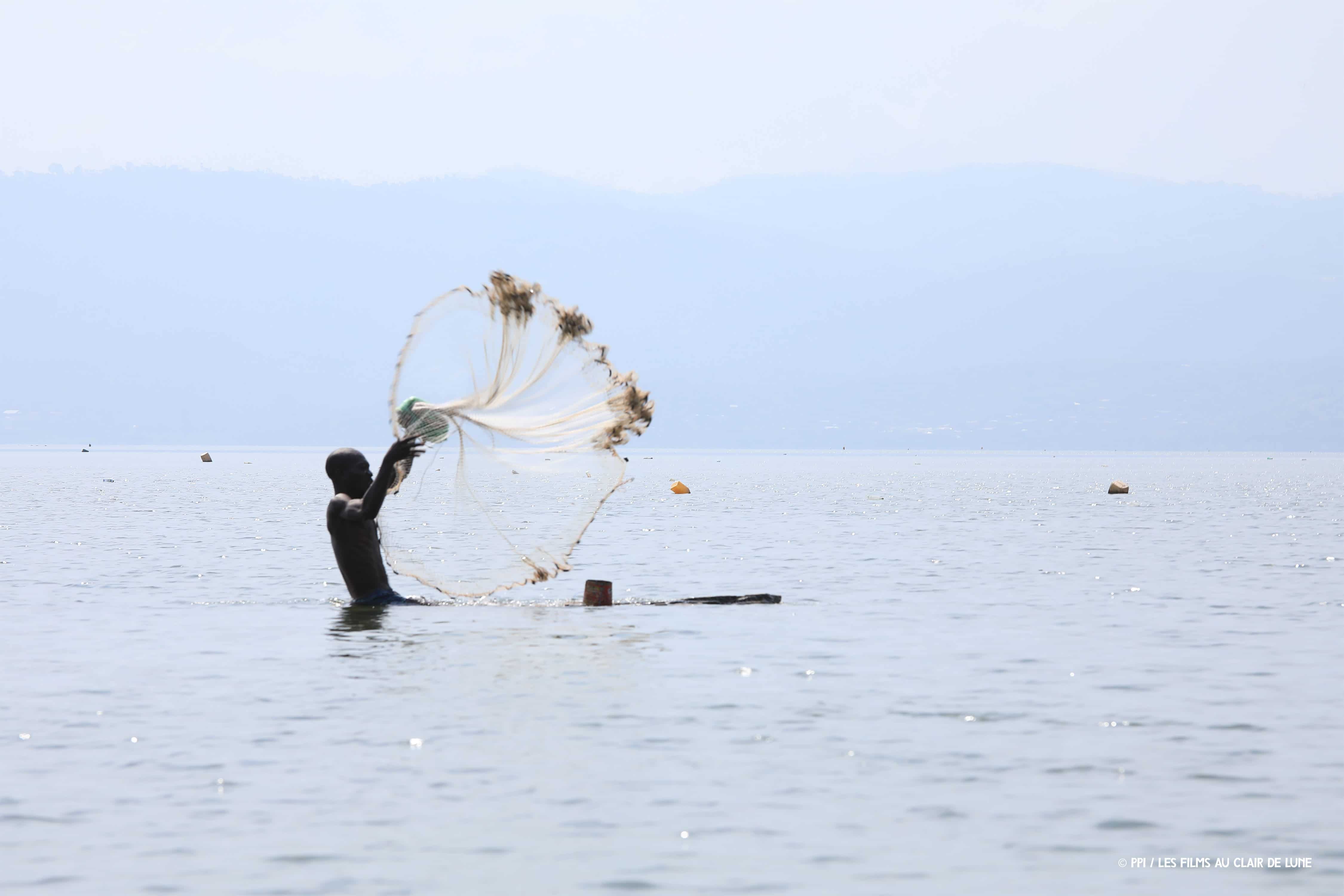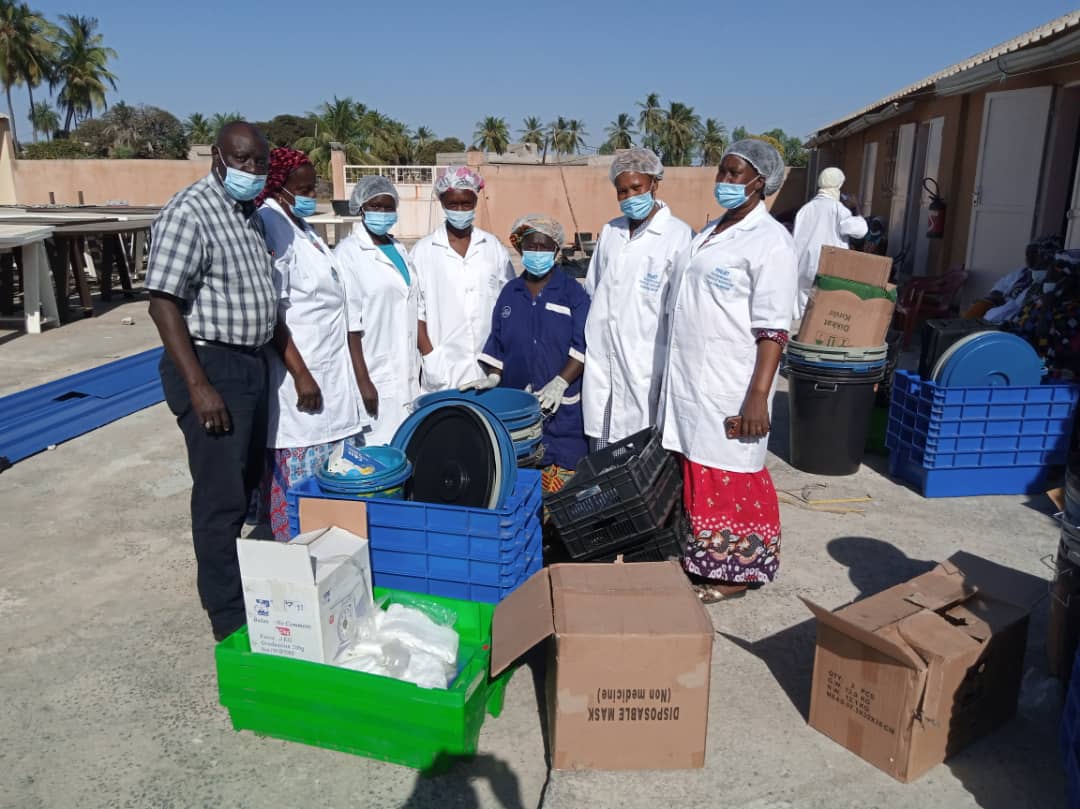
Interview with Abdoulaye SAMBA, FENAGIE PECHE
Published on 16 December 2021- Good morning Abdoulaye, can you introduce yourself in a few words and tell us about your background?
My name is Abdoulaye SAMBA. I am the technical coordinator of the FENAGIE PECHE in Senegal (National Federation of Economic Interest Groups in Fishing). I have been working in the artisanal fisheries sector since 1989. My role is mainly to provide support and advice to artisanal fishing organisations in Senegal. I used to work in an NGO supporting the sector before joining FENAGIE PECHE in 1997. To give you an idea, today FENAGIE PECHE has 39 local unions member representing 475 Economic Interest Groups, made up of 7975 women and 2231 men. In addition to my years of work in Senegal, I was also able to spend some time in France in Guilvinec (Brittany) at the level of the Local Fisheries Committee to better understand the problems linked to grassroots community organisations to make them strong and independent.
- Can you tell us why is a fishermen’s organisation like FENAGIE interested in biodiversity conservation?
The conservation of biodiversity is a contemporary issue. It is first and foremost the duty of everyone to intervene. There is also the fact that the fisheries sector is being hit hard by the effects of climate change. On the other hand, FENAGIE PECHE aims to improve the living and working conditions of its members, to defend the interests and rights of its members, but also to improve the exploitation of natural resources. Thus, it is through this last objective that we have the duty to intervene for the preservation of resources, especially fisheries.
- What do you do concretely in this field?
In the field of conservation, our most concrete actions are developed in the islands of the Saloum Delta. In this area, we have many members through our local unions, and there is not a year when we do not participate in reforestation activities directly through FENAGIE PECHE, or indirectly through NGOs that request our members for interventions. Thus, in addition to information, training and awareness-raising activities on topics related to biodiversity conservation, we frequently carry out mangrove reforestation activities, immersion of artificial reefs, income-generating activities through the installation of beehives and oyster garlands that contribute to the protection of the mangrove. At the national level, we do a lot of advocacy, especially to protect the sardinella, which is essential for the food security of the population.
- What results does FENAGIE observe in terms of conservation?
The results are satisfactory and visible in the Saloum delta. We note that the members active in the local unions in this area have taken on the theme and regularly carry out biodiversity conservation actions. Thanks to the PPI and Swiss Catholic Fund, we have reforested 30 hectares of mangrove between 2018 and 2021. Also, the women members who collect shellfish manage aquaculture areas by enforcing biological rest periods and seeding of juvenile arches (shellfish) and this allows a good preservation of the resource thus contributing to the sustainability of the fishing activity. Thanks to support from the SMILO fund, we have also been able to submerge artificial reefs made from shellfish to restore the biomass in certain areas. Finally, thanks to the awareness-raising activities and training that we organise, we have seen a diversification of activities by transforming forest products into local juices, which is a way of contributing to the creation of income while allowing the fish products to reproduce properly.
- What perspectives do you see in terms of conservation for FENAGIE and what challenges do you see?
We want to develop actions to enhance the value of bivalves, mainly through the installation of oyster farming areas. Indeed, this is a sure way to stop the cutting of mangrove roots by oyster producers. There is also the installation of beehives in the mangrove areas for honey production. We would also like to pursue reforestation and monitoring of areas already reforested. If the funds are sufficient, households could be equipped with bio-digesters to reduce the use of mangrove wood for cooking. The big challenge now is the marine fisheries sector, where we will have to pursue many information and awareness-raising actions against bad fishing practices and the preservation of small pelagic juveniles, whose critical areas are essentially in the mangrove zones. Many actions will be necessary for a good adaptation to the effects of climate change. But there is also a major challenge for small-scale fishing, which concerns the exploitation of hydrocarbons. In Senegal, from 2023 onwards, many of our traditional fishing areas will be off-limits to us because of oil and gas extraction platforms, and this augurs a difficult future for fishing communities, but also many conflicts. Therefore, we need to work hard to strengthen the Marine Protected Areas and around them to contribute to the restoration of marine habitats and the conservation of biodiversity, which is key to the economic development of the Senegalese people.
- Finally, you were able to go to the IUCN World Congress in Marseille, how did you position yourself at this congress?
I was indeed able to go to the IUCN World Congress in 2021 held in Marseille as a beneficiary of PPI funding. I tried to make a plea in the favour of civil society as much as possible, during an intervention on the European Union’s stand and during direct discussions with the donors I met, so that civil society would have the possibility of receiving more support. Indeed, the funds made available are considered too weak in relation to the issues at stake, whereas civil society is at the heart of the concerns. I have asked for more direct and consistent support, especially in competition with international NGOs, which do not give it much chance of attracting funds during calls for applications. Perhaps we should have more different sources of funding, such as the PPI, to increase our chances and implement solutions to our own difficulties that we experience daily. We do not have the same absorption capacity, but we are directly on the sites. We know that just a part of the funds made available in some projects would enable us to achieve more significant results. That is why we are still calling for civil society to be further supported, strengthened, and accompanied. With this congress, I could see the strong presence of African civil society, and given this positioning in an international event, I hope that changes will come and that the opportunities for small-scale funding will increase in the future. It is up to us to show our legitimacy on the ground and continue this advocacy in this direction.
